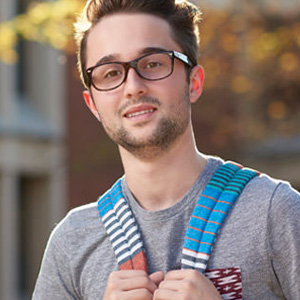Ignite a Career in Electrical/Electronic Engineering Technology
The electrical/electronic engineering technology (EEET) associate in applied science (AAS) program trains students to work as technical assistants with scientists and engineers. The program emphasizes practical experience and teaches skills such as drawing interpretation, testing procedures and data compilation. Mechanical aptitude and a background in math and science are beneficial for prospective students.
What is Electrical/Electronic Engineering Technology at
St. Louis Community College?
Electrical/electronic engineering technology is a field that focuses on the practical application of electrical principles and electronics. Professionals in this field design, develop, test and maintain electrical systems and electronic devices, working in various industries such as manufacturing, controls and automation.
Through classroom work and practical experience in technology laboratories, you will learn:
- Electrical/electronic theory and its application to analog and digital circuitry
- To prepare and interpret engineering drawings
- To perform testing procedures
- To compile technical data
- System and component troubleshooting

What Can You Do with an Electrical/Electronic Engineering Technology Associate Degree?
With an electrical/electronic engineering technology associate degree you can work as an electrical or electronics technician. You'll assist in designing, testing and maintaining electrical systems and electronic equipment, often in roles like engineering technician, electronics technician or electrical drafter in industries like manufacturing or telecommunications.
Electrical and electronics engineering technicians assist engineers in the design and development of:
- Computers
- Communications equipment
- Robotic manufacturing equipment
- Medical devices
- Navigational equipment
- Power distribution systems
- Other electrical/electronic equipment
If you’ve earned a certificate of specialization in biomedical electronics technology, some of your credits can apply toward your electrical/electronic engineering technology AAS degree. Learn more about stackable credentials within this career pathway.
In this program many credits might transfer to four-year institutions with electrical or electronics engineering technology programs.
AAS in Electrical/Electronic Engineering Technology
- Degree offered: Associate in applied science
- Locations: Florissant Valley
- Hours to complete: 60
- Program contact name: Christopher Senger
- Program contact email: csenger1@stlcc.edu
Tuition for district residents is $122 per credit hour for in-district students. Find out more about our straightforward and low-cost tuition structure.
Student Outcomes
Graduates of the EEET program are able to:
- Know the symbols and terminology of electrical/electronic engineering technology; draw and read schematics, block diagrams and wiring diagrams; understand the functions and applications of electrical components and circuits.
- Assemble, connect and analyze breadboard, and final assembly electronic circuits from schematic diagrams.
- Apply mathematics and modern computation methods in the solution and troubleshooting of electrical, electronic and digital circuits.
- Be familiar with the thermal and mechanical effects in defining and troubleshooting form, fit and function in electrical/electronic prototyping.
- Properly use and care for instruments, set up test instruments, read, record and interpret test data.
- Exhibit effective interpersonal and team skills, as well as effective oral and written communications skills in on-the-job situations.
- Meet industry’s expectations with regard to skills, knowledge and safe work habits.
Why You Should Choose STLCC's Electrical/Electronic Engineering Technology Program

Graduate with Little or No Debt
We believe cost should never be a barrier to achieving your potential. Save over $4,700 per year with tuition that’s one-third lower than other local institutions.

Ramp Up High-Wage Skills
STLCC offers career-focused programs for high-wage, high-skill and in-demand jobs. STLCC provides opportunities for college transfers, career development and workforce training.

Hands On Learning
Small class sizes provide you with extensive hands-on training and support throughout your time at STLCC with the opportunity to learn on the equipment used in the industry.

Wide Range of Career Paths
Students in this area can be repairing electronic equipment, working with control systems, robotics, and automation, working with industrial maintenance and repair, or branching out on their own.
Come as you are. See what you become.
